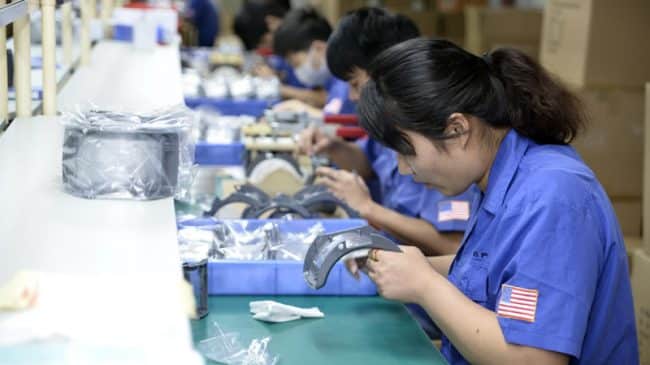The jokes around the internet about the historically high price of the iPhone X have already started. While some are having fun, some are using it as a chance to bemoan the wage inequality at Apple despite such profitable products.
The major complaint is that Apple and other profitable tech firms in the industry are paying “non-skilled” labor such as janitors and secretaries as independent contractors, whereas back in the old days employees like these were hired full time and given mandated employee benefits. The author argues that this is a fundamental shift in business models – that non-skilled labor is treated as a cost to be minimized rather than an asset to be invested in. And that this shift is largely to blame for inequality in America today. Unfortunately, this kind of thinking is flawed.
The idea that non skilled labor should be treated and paid like full time labor breaks down quickly. It seems to forget where the profits that pay the wages of janitors and other unskilled labor come from. Apple does not exist because it had good janitors, it exists because it is the culmination of hundreds of thousands of nodally coordinated human contributions. Recent research has shown how successful tech firms have systematically invested in human capital and technology across all industries to gain competitive advantages.
Remember that these investments were pretty risky for investors, collectively risking tens of billions of dollars to start companies, do research, and buy patents. Thus, the payoffs are larger. Janitors took no such risks during this time, thus their compensation has remained relatively flat, and it will continue to be so as long as the laws of supply and demand are allowed to work and janitors do not suddenly become venture capitalists or software engineers. Generally, firms will pay labor what it’s worth relative to its marginal contribution to the firm (as is evident in the pay gap between janitors and software engineers), and government attempts to raise those wages only result in more job loss.
The minimum wage experiment in Seattle reaffirms my point – government cannot create policies that in the long run raise wages of unskilled work. Attempts at artificially raising wages of unskilled labor via the minimum wage in Seattle resulted in the elimination of the jobs altogether because automation was cheaper than artificially expensive labor.
Arguably, the legal requirement to offer the same benefits to all full-time workers regardless of pay scale has rushed firms into independent contracting in the first place. The very fact that Kodak doesn’t have any job openings for janitors somewhat proves the point – the more competitive firms opted to use contracting rather than pay the artificially high price of full time unskilled labor which is legally required to receive the same benefits as other workers. Forcing employee benefits onto firms did not have the intended policy effect of raising unskilled wages, it simply initiated the same process that happened in Seattle. Rather than add more full time janitors, Apple found a way to keep their offices clean only using contractors.
Ideally, firms should pay for labor based on its marginal contribution to the firm, and then people should save or spend that money based on their own economic needs and wants – without government incentives and disincentives. As for unskilled labor, wages will not go up by government mandating benefits, but by learning even a basic technology skill. Some studies have shown that low and middle wage earners received a pay bump by learning even a basic technology skill like Microsoft Excel. It’s not the lack of benefits as contractors making life tough for unskilled labor, it’s the lack of skill. Government has made life for unskilled labor even harder not by denying them mandatory benefits, but mostly by raising the cost of living.
By restricting the supply of local housing, government has raised the costs of rents and local services in growing cities at a rapid pace, doing damage to “real wages.” As I’ve argued, non-skilled wages will likely remain flat into the digital age, and any attempt at artificially raising those wages will likely only usher in the elimination of that job altogether sooner than would have naturally occurred. A better way to help unskilled labor would be to start thinking about ways government artificially raises the cost of living – housing, taxes, tariffs, regulations, and other areas are ripe for reform. Since we can expect wages to remain relatively flat for this category of worker, keeping the cost of living and inflation low are essential to improving their quality of life.
